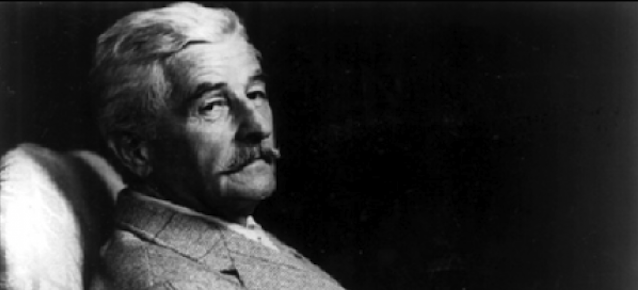
Of all the wonderful things Paul Walker said at the recent Birmingham Conference, this in particular stands out in my mind. Please forgive me as I paraphrase from memory:
I know people who are just beside themselves over trying to get their kids into just the right preschool, because getting into just the right preschool means getting into just the right primary school, which means getting into just the right college, so that one can have just the right career, marry just the right kind of person and have just the right kind of kids, that of course will get into…just the right kind of preschool. The ‘wheel in the sky’ keeps on turning, and it will continue to turn until we may or may not end up in just the right kind of graveyard.
As a southerner, this comment took me back to William Faulkner’s Go Down, Moses, in which Faulkner put this “wheel in the sky” in a very poignant and quintessentially southern way, by tying it to something to which every southerner is tied in some way: the land.
There’s a reason that Garden and Gun magazine has struck such a chord in the southern mindset. It’s because deep in every southerner’s heart is a love for the land. It’s not the garden that we plant so much as the land upon which we plant it. Likewise, it’s not so much the hunting itself as it is where we hunt. We’re tied inseparably to the land.
And the land has its cycle. It’s passed from generation to generation, and each generation in its brokenness makes the same mistakes upon that same land, over and over again. In Go Down Moses, the land inherited by Isaac McCaslin has borne the sin of the institution of slavery, and more germane to the story, the specific sin of blue-eyed children having been sired in the slave quarters row.
Young Isaac learns this through the slave ledgers which still reside above an ancient desk in the rambling old plantation commissary even up to the time of his youth, which is some 20 to 25 years after the War (in the South we don’t call it “Civil”– it’s simply referred to as “the War”). McCaslin comes to the conclusion that it’s the land itself that is cursed, that all land is in fact cursed, and that the origin of this curse is man’s belief that he could ever own the land in the first place.
 As a result of this revelation, Isaac tries to run from the land. He repudiates his birthright, giving the land to a cousin who isn’t in the paternal line. He then spends the rest of his life seeking solace by hunting in the “big woods,” contenting himself to live in a small house in town that isn’t his, and to own nothing except his camp cot, hunting kit and rifle.
As a result of this revelation, Isaac tries to run from the land. He repudiates his birthright, giving the land to a cousin who isn’t in the paternal line. He then spends the rest of his life seeking solace by hunting in the “big woods,” contenting himself to live in a small house in town that isn’t his, and to own nothing except his camp cot, hunting kit and rifle.
To a southern man who is seeking to detach in my own way, this seems idyllic, but alas it’s not to be. No one escapes the land. And indeed, in the final chapter of the book an elderly Isaac McCaslin is confronted with yet another illegitimate child sired under sinful circumstances by someone tied to that same land, this time by his cousin’s son.
I believe Faulkner to be on sound biblical ground here. The Apostle Paul makes reference to this in Romans 8 by referring to the whole of creation as having been “subjected to frustration” as a result of original sin. Faulkner is pointing to this in his own very southern way by pointing to the land and all that resides upon it as being cursed as a result of sin.
So one is left wondering if there is any hope for our situation, given that we can’t escape the curse on foot. Yet Paul tells us we do have one hope. Our hope lies in a form of death, which is admittedly not very palatable at first blush, until we consider what he means. We must die and be reborn. We must be made new. This does happen, and it has happened: “I have been crucified with Christ and I no longer live, but Christ lives in me.” Galatians 2:20. The right kind of graveyard, if ever there was one.
[youtube=http://www.youtube.com/watch?v=2Vou51-755I&w=600]

COMMENTS
3 responses to “Southern Comfort(able) Words and Faulkner’s Go Down, Moses”
Leave a Reply













This is excellent, all the way around.
The LORD had said to Abram, “Leave your country, your people and your father’s household and go to the land I will show you” (Genesis 12.1).
But, in accordance with his promise, we wait for new heavens and a new earth, where righteousness is at home (2 Peter 3:13).
Even so Lord Jesus, “take a load off now!”
Absolutely fantastic! (said the Alabama girl living in South Carolina).